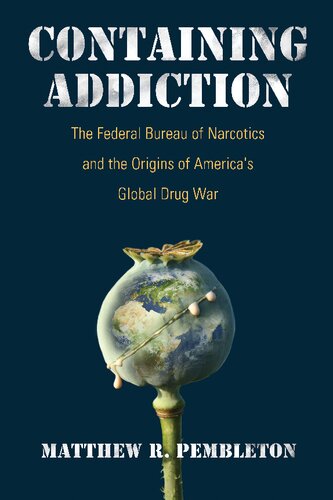

Most ebook files are in PDF format, so you can easily read them using various software such as Foxit Reader or directly on the Google Chrome browser.
Some ebook files are released by publishers in other formats such as .awz, .mobi, .epub, .fb2, etc. You may need to install specific software to read these formats on mobile/PC, such as Calibre.
Please read the tutorial at this link: https://ebookbell.com/faq
We offer FREE conversion to the popular formats you request; however, this may take some time. Therefore, right after payment, please email us, and we will try to provide the service as quickly as possible.
For some exceptional file formats or broken links (if any), please refrain from opening any disputes. Instead, email us first, and we will try to assist within a maximum of 6 hours.
EbookBell Team

5.0
78 reviewsThe
story of America’s “War on Drugs” usually begins with Richard Nixon or
Ronald Reagan. In Containing Addiction, Matthew R. Pembleton argues that
its origins instead lie in the years following World War II, when the
Federal Bureau of Narcotics—the country’s first drug control agency,
established in 1930—began to depict drug control as a paramilitary
conflict and sent agents abroad to disrupt the flow of drugs to American
shores. U.S. policymakers had long viewed addiction and organized crime
as profound domestic and trans-national threats. Yet World War II
presented new opportunities to implement drug control on a global scale.
Skeptical of public health efforts to address demand, the Federal
Bureau of Narcotics believed that reducing the global supply of drugs
was the only way to contain the spread of addiction. In effect, America
applied a foreign policy solution to a domestic social crisis,
demonstrating how consistently policymakers have assumed that security
at home can only be achieved through hegemony abroad. The result is a
drug war that persists into the present day.